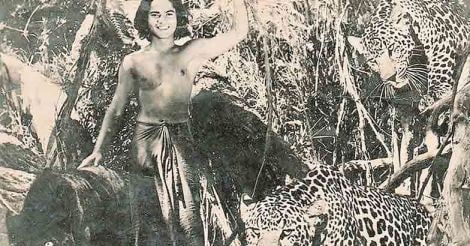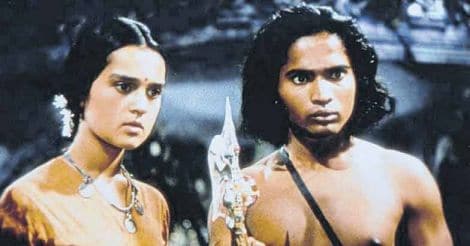At a time when most Indians did not know what cinema was, a film crew came to the palace of the Mysore King. Led by directors Robert Flaherty and Zoltan Korda, the team had come to India to make the film, Elephant Boy- an adaptation of Rudyard Kipling's, 'To My Elephant.'
Since the story was about an elephant and a child, they wanted a child actor who had a close interaction with an elephant. The search for such a boy ended in Selar Sheikh, a lad who knew nothing about films. He was the son of Ibrahim, a mahout, and Selar had a very close association with 'Hathi,' Ibrahim's dear elephant. Hathi was also very much attached to Selar and even used to lull Selar into sleep when he was a kid. When Ibrahim died, Hathi went on a fast and refused to eat. Troubled by his plight and hoping that things would improve, Selar sent Hathi away to the forests. After his mother passed away, Selar and his brother Dastagir found employment at the King's elephant pen. There, he became very close to Airavat, an elephant. He wanted to become a mahout when he grew up. When Flaherty and his team found Selar, they were impressed by how easily Selar could handle elephants.

In the film, Selar was cast in the role of a kid mahout and he acted the role with ease. Even difficult scenes, such as crossing a surging stream on his elephant, were completed easily thanks to the skills of Selar. Impressed by Selar's acting skills, the script was re-written to give his character more prominence in the film.
Producer Korda decided to give Selar a new name since he was expected to become a star soon. Thus Selar became Sabu. Since some of the scenes had to be shot in England, Sabu and his brother were taken to England. During the trip however, confusions in travel documents ultimately saw Dastagir's name being clubbed to Sabu, making him known as Sabu Dastagir.

When the film was released, the audience in Europe and US were spellbound at the sight of a frail little boy handling mighty pachyderms with ease. Elephant Boy collected 4,50,000 dollars from the theatres. To promote the film, Sabu was taken to New York and Paris to attend road shows.
The film made news and soon won awards at the Venice film festival. Sabu became a sensation in radio shows and newspapers. The Times Newspaper in London said that Sabu was a born actor.
After their first film with Sabu became a success, the Korda brothers started planning for a film that could utilise the acting skills of Sabu. When 'The Drum' too became a hit, Newspapers such as New York Times started to wait on Sabu for interviews. President Franklin D Roosevelt and the First Lady hosted Sabu in the White House.

Mowgli's role was perhaps tailor made for Sabu. The filming, 20 miles from Los Angeles in a forest, was more a fight for life than filming. Two Bengal tigers, 22 elephants, five leopards, a bear, various kinds of deer, monkeys, wolves, bison and goats were ready in the sets. The crew were often attacked by the animals and many escaped serious injuries by a whisker. However, the challenge was well taken by the crew and their efforts were subsequently well rewarded. Sabu's Jungle Book, released 25 years before Disney's Jungle Book, received four nominations at the Oscars.
Sabu grew up on screen to become Abu the thief in Korda's 'The Thief of Baghdad.' Perhaps this was Sabu's career best performance. He went on to star in 23 films such as Universal Picture's Arabian Nights, White Savages, Cobra Woman and so on. Sabu became an American citizen and soon commanded wealth equivalent to an average Hollywood actor.
Sabu's stint in India however was not eventful. The menial worker of the Mysore King, who returned as a royal guest was welcomed by the Palace. He however had to fend off some stiff criticisms back home. Some sections of the Indian media said that he had become a 'white.' Even though he was offered a role in Mehboob Khan's 'Mother India,' Sabu declined the role. It was subsequently played by Sunil Dutt who went on to essay the character, Birju, in the film.
After 1950, Sabu's fortunes started to fade. When roles similar to Mowgli and Elephant Boy became repetitive, producers became reluctant to go ahead with them. On the other hand, Sabu was also reluctant to essay roles that always favoured colonial powers. After acting in two films in the UK, Sabu became an elephant trainer in a circus. His last film was 'A Tiger Walks.' In 1967, he died, at the age of 39.
His daughter Jasmine wanted to keep alive the memories of Sabu by remaking the Thief of Baghdad. However, the endeavour ran into trouble and all the staff working in the film were jailed. Jasmine's health deteriorated following the setback. Those who had expected the news of the film's release came to know of Jasmine’s untimely death. That drew the curtains on the history of the Indian Mowgli; an anecdote of a South Indian lad atop an elephant, who conquered the mind and heart of Hollywood.
























